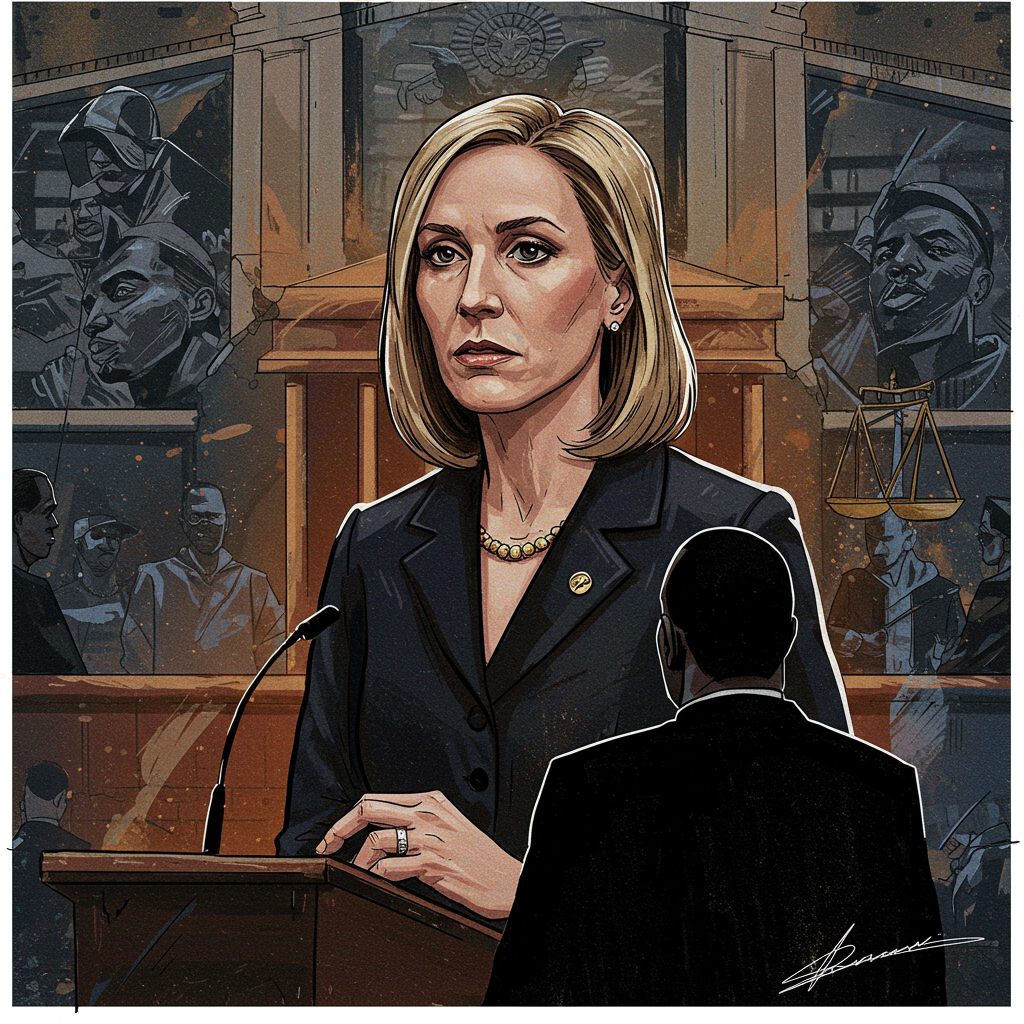In dramatic closing arguments concluding a nearly seven-week federal trial, United States prosecutors asserted that music mogul Sean “Diddy” Combs leveraged his immense power, wealth, and fame to orchestrate a vast criminal enterprise, using violence, fear, and control to abuse women and evade accountability for decades.
Assistant U.S. Attorney Christy Slavik delivered the prosecution’s final address to the jury in a New York courtroom, painting a picture of Combs as the head of an operation that facilitated brutal crimes, including sex trafficking. “The defendant used power, violence and fear to get what he wanted,” Slavik told jurors, arguing that Combs believed his status placed him “above the law.”
Key Allegations and Prosecution Evidence:
The prosecution’s case centered on the theory that Combs did not act alone but relied on a “small army” or “inner circle” of employees from his entertainment empire. This network allegedly assisted in carrying out harm against women, covering up abuses, and intimidating anyone who pushed back, thereby making the alleged enterprise “more powerful and more dangerous.”
Harrowing testimony was heard from over 30 witnesses, including former girlfriends like singer Casandra “Cassie” Ventura and another woman identified as “Jane.” Their accounts detailed an atmosphere of cruelty, exploitation, and intimidation surrounding Combs.
Central to the prosecution’s argument were allegations surrounding events dubbed “freak offs” or “hotel nights.” These were described as drug-fueled, elaborately produced sexual performances, sometimes lasting days, often involving paid male sex workers directed by Combs and sometimes filmed. Prosecutors contended that Combs coerced women like Ventura and Jane into participating, often through threats, financial control, physical abuse, and the fear that embarrassing footage might be released.
Evidence presented included texts from “Jane” expressing her distress about these encounters, calling them deeply disliked, despite later messages that the defense argued showed willingness. The prosecution countered that any appearance of enjoyment was due to coercion or intoxication, like being under the influence of “liquid Molly,” rather than free choice.
A pivotal piece of evidence repeatedly shown to the jury was hotel surveillance footage from 2016 allegedly showing Combs physically assaulting Cassie Ventura. The prosecution argued this incident was not isolated domestic violence but directly linked to the sex trafficking charges, demonstrating the violence used to coerce Ventura into continued participation in the “freak offs.” They described it as stark evidence of “what happened when Cassie said no,” arguing the “cloud of his abuse was hanging over Cassie’s head – always hovering,” keeping her “scared into compliance.”
Prosecutors argued that Combs’ alleged actions fit the definition of racketeering, a legal framework for organized criminal activity, asserting that committing crimes as part of a group amplified his power and danger. While the indictment against Combs included allegations spanning decades and involving various crimes like kidnapping attempts and arson (such as the alleged involvement in the Kid Cudi car explosion), the prosecution focused their closing arguments heavily on the sex trafficking allegations involving Ventura and Jane as core racketeering acts.
Defense Counter-Arguments and Trial Status:
Combs’ legal team presented their case in less than 30 minutes and called no witnesses, opting instead to challenge the prosecution’s evidence through extensive cross-examination. They have argued that while Combs may have a violent temperament and committed violent acts against partners, prosecutors have fundamentally misrepresented a “sexually unorthodox lifestyle” as evidence of serious federal crimes like racketeering and sex trafficking. They suggested that women involved were willing participants, a notion the prosecution vigorously rejected, citing coercion, fear, and the psychological impact on victims.
Combs, who has pleaded not guilty to charges including sex trafficking and racketeering conspiracy, sat with his head down during parts of the closing arguments, though he has been actively engaged in his defense throughout the trial, often writing notes to his lawyers. He informed the judge that his decision not to testify was “solely” his own.
Following the prosecution’s hours-long closing statement on Thursday, the defense is scheduled to deliver their closing arguments, with the prosecution then allowed a rebuttal. U.S. District Judge Arun Subramanian will instruct the jury on the applicable law before they begin deliberations, which are anticipated to start soon after.
If convicted on all counts, Sean Combs faces a minimum of 15 years in prison, with the potential for a life sentence. He has remained in custody since his arrest in September 2024.




